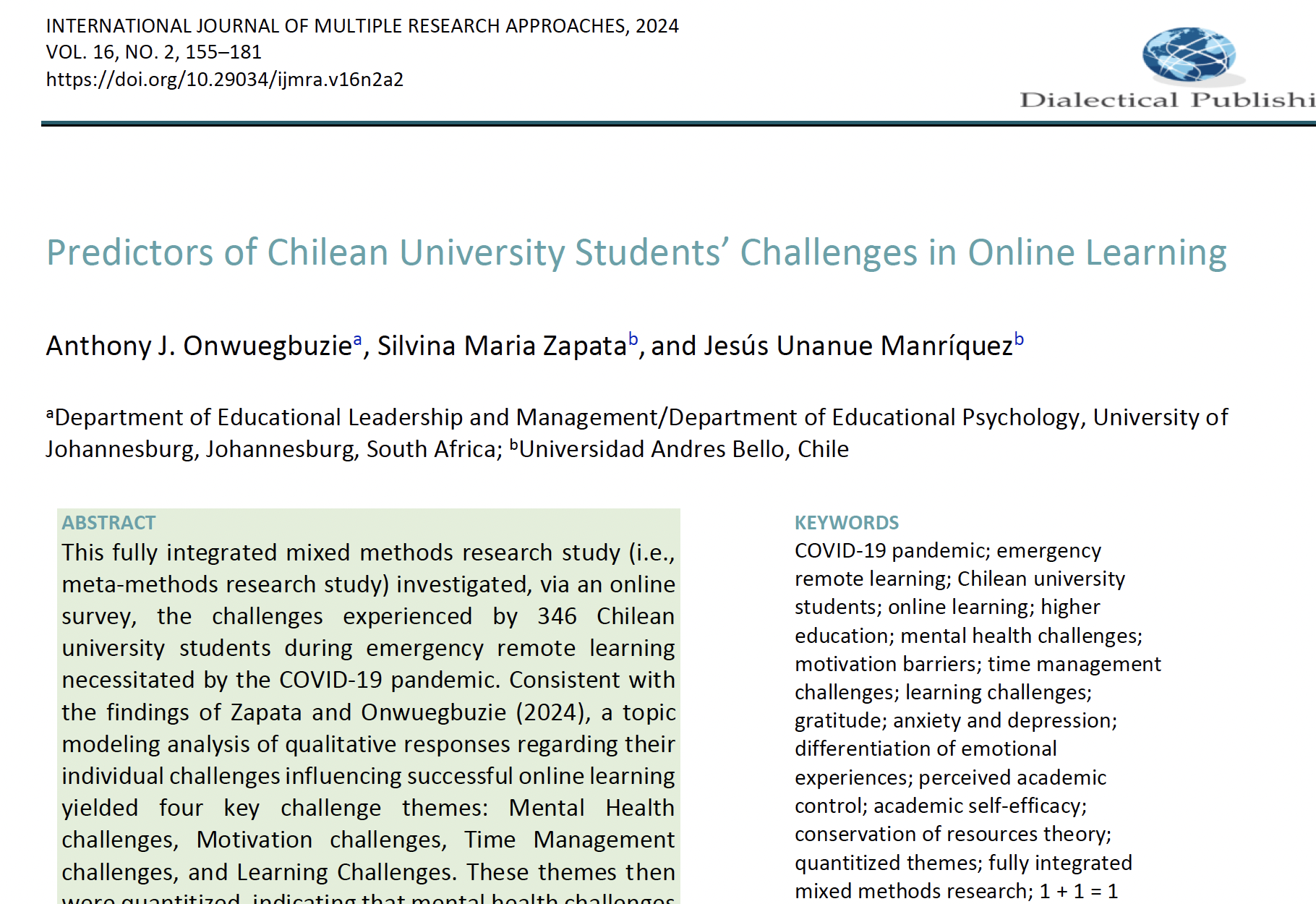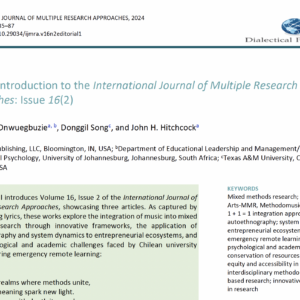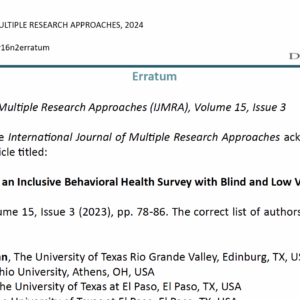16(2). 05. Predictors of Chilean University Students’ Challenges in Online Learning
$30.00
Description
Authors
Anthony J. Onwuegbuzie(a), Silvina Maria Zapata(b), and Jesús Unanue Manríquez(b)
(a) Department of Educational Leadership and Management/Department of Educational Psychology, University of Johannesburg, Johannesburg, South Africa; (b) Universidad Andres Bello, Chile
Abstract
This fully integrated mixed methods research study (i.e., meta-methods research study) investigated, via an online survey, the challenges experienced by 346 Chilean university students during emergency remote learning necessitated by the COVID-19 pandemic. Consistent with the findings of Zapata and Onwuegbuzie (2024), a topic modeling analysis of qualitative responses regarding their individual challenges influencing successful online learning yielded four key challenge themes: Mental Health challenges, Motivation challenges, Time Management challenges, and Learning Challenges. These themes then were quantitized, indicating that mental health challenges were the most prominent, affecting 29% of respondents. The quantitized themes were subjected to principal components analysis using both orthogonal and oblique rotations—both of which revealed two overarching metathemes: Metatheme 1: Learning and Motivation Barriers and Metatheme 2: Well-Being and Productivity Barriers. An all-possible-subsets canonical correlation analysis examined the relationships between these four metathemes and five psychological variables (gratitude, anxiety and depression, differentiation of emotional experiences, perceived academic control, and academic self-efficacy). This analysis revealed significant relationships between psychological variables—specifically, anxiety and depression, academic self-efficacy, and gratitude—and three sets of themes, namely, time management, mental health, and learning challenges. However, the multivariate relationship between the psychological variables and the challenge themes primarily was driven by the association between anxiety and depression from the set of psychological variables, and mental health from the set of challenge themes. The findings align with the Conservation of Resources theory, which highlights the interplay of resource depletion and replenishment during stress. The findings provide actionable insights for universities to design integrated interventions addressing both psychological and academic barriers.




